In the game of chess, a blunder means a terrible move.
The chess notation for a blunder is a double question mark “??” after the move.
Let’s see a popular example of a huge blunder made during a chess game:
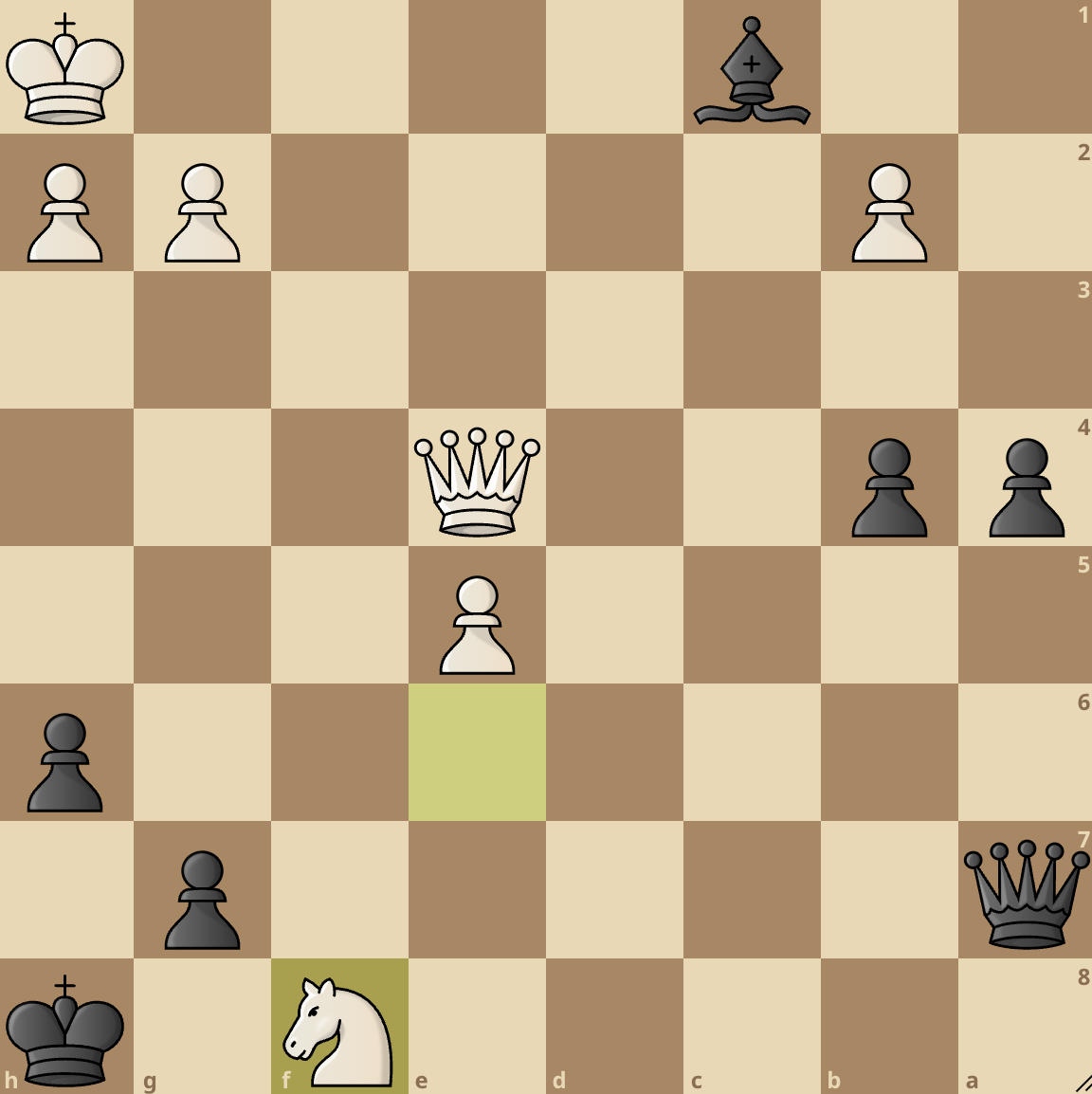
The position above is from a game that was played between Deep Fritz, a chess computer (White) and former world champion, Vladimir Kramnik (Black).
White just captured a Black rook on f8 with the knight but Kramnik fails to see the immediate threat and plays 34…Qe3??
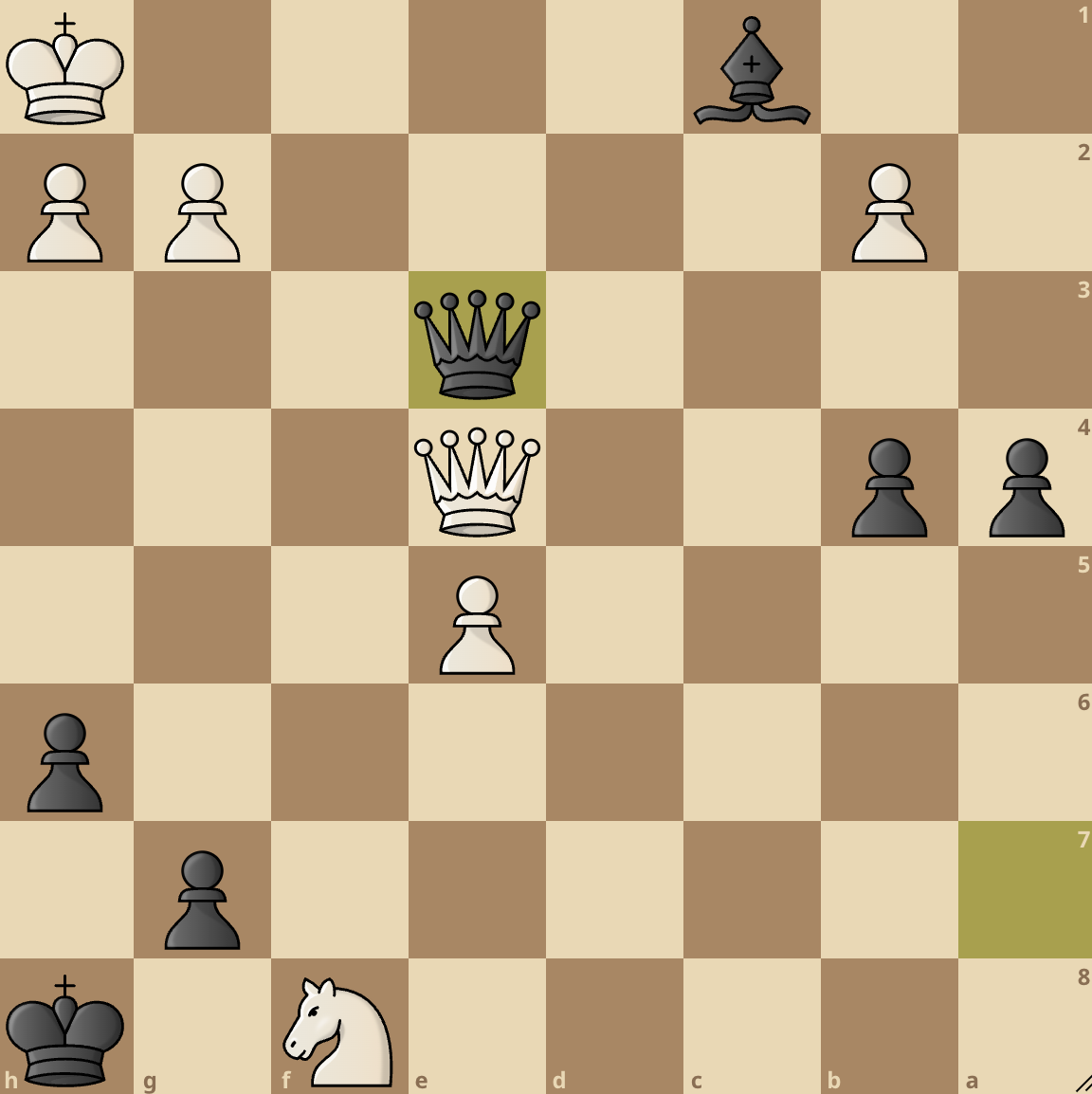
Can you see the winning move?
Yes, it’s a mate in one with Qh7#
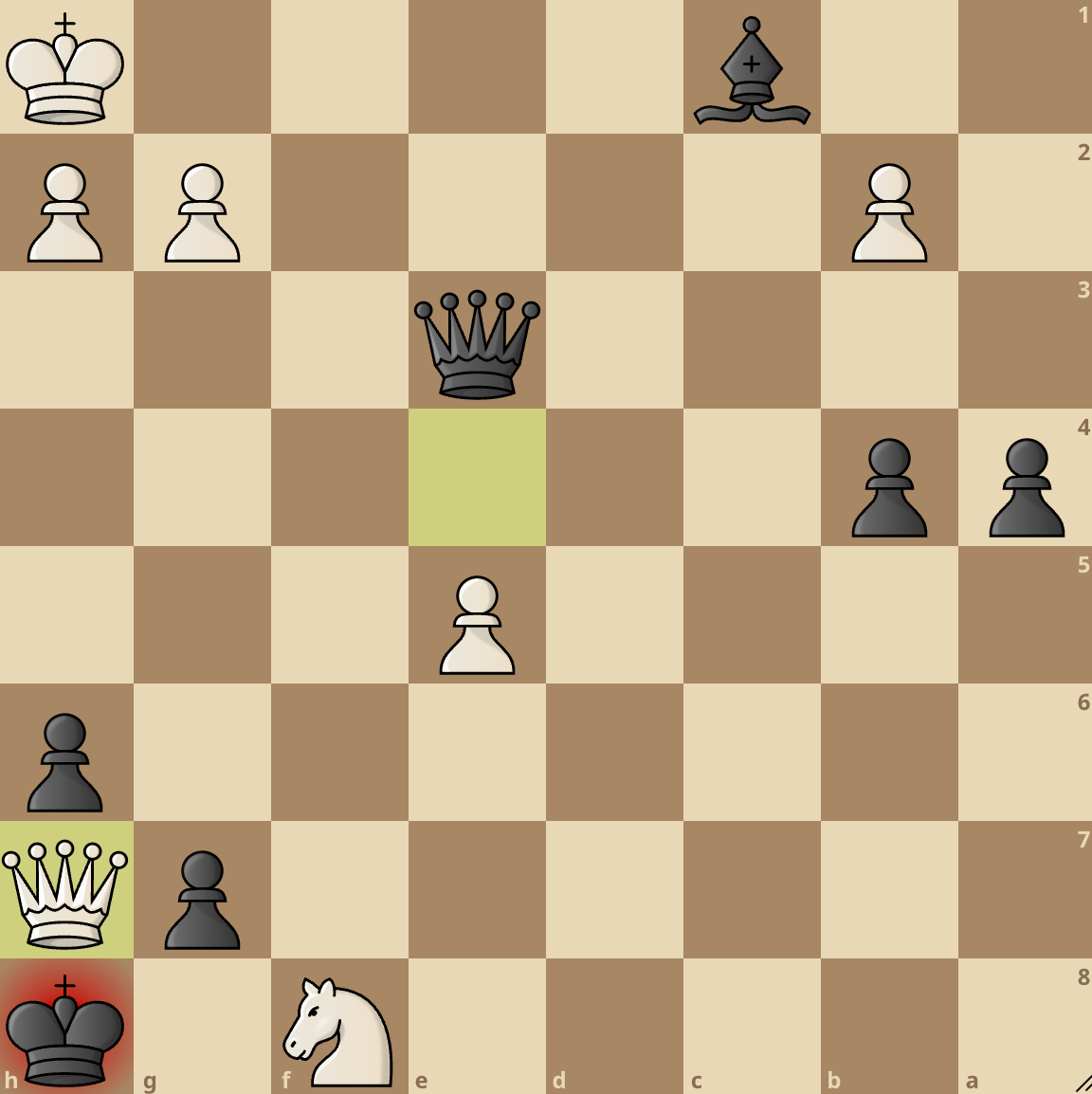
You can check out the full game below. Touch the moves or move the board around for a better interactive experience.
What could have caused this chess legend to miss a simple mate in one? A reasonable explanation is that the knight is placed in an odd position to support a checkmate.
Another reason is plain chess blindness which brings about that tendency to miss simple traps and tricks.
You see that blunders do not just affect novices but also super grandmasters. Now chess blindness is not the only cause of blunders – there are other factors such as time trouble, discomfort, carelessness, or overconfidence.
We’ll now examine these in more detail:
1. Time Trouble
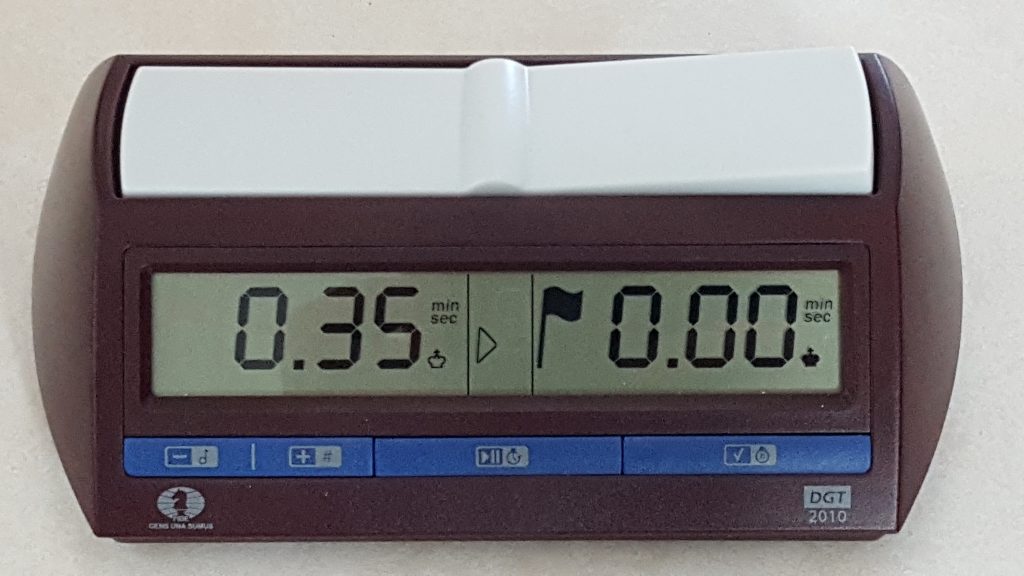
A player can commit a blunder when the time available to him on his clock is very low. When a player has very little time on the clock, in chess, we say they are in time trouble.
Time trouble usually occurs in faster time formats like Blitz and Bullet chess. It also occurs in Rapid and Classical.
However, it is rarely seen in Classical as players have more time on the clock than in other time formats, and most times they have increments.
The major cause of time trouble is when a player spends so much time in a particular position that they do not have enough time to play and finish the game. Therefore, to avoid falling into time trouble, time management is crucial.
2. Discomfort
Chess is a game that is played with the mind AND body.
If a player is experiencing some level of discomfort, be it minor or major, they are prone to making a blunder as their mind would not be able to concentrate fully on the game.
That’s because chess is a game that demands the highest level of concentration.
3. Carelessness
A chess player is like a surgeon. He has to play the game with care.
Carelessness or recklessness in a game of chess is suicide. A player that doesn’t pay attention to the tiniest of details will lose the game quickly.
4. Overconfidence
There is a saying that there are chess masters, but there is no master of chess. A chess player has to be level-headed and not get too cocky and overconfident.
Underestimating your opponent is a dangerous thing in chess. When a player feels he’s far better than his opponent, he lets his guard down and, more often than not, makes a blunder.
How To Prevent Blunders In Chess
Since humans are generally programmed to make mistakes, it is natural that errors will occur on the chess board.
However, there are a few ways to minimize the occurrence of blunders.
1. Never Leave A Piece Undefended
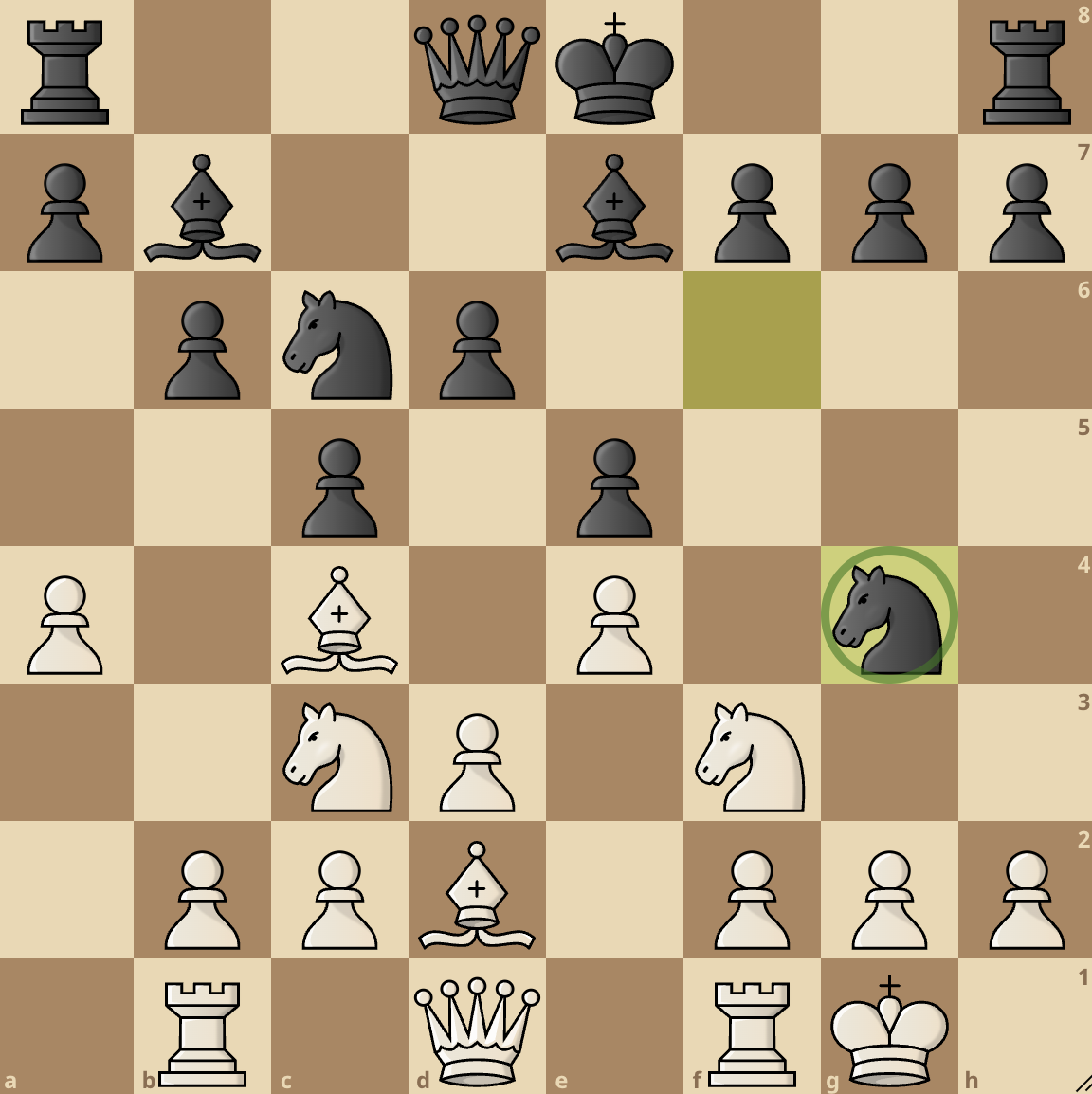
It’s very important always to guard your pieces against enemy attacks. Leaving your pieces unprotected is a sure way to make a blunder.
2. Warm Up Before A Chess Game
Before getting into a chess match, it is recommended to “warm up.” This could mean playing speed chess or solving chess puzzles.
Doing this gets you in the mood for the game and prepares your brain for the task ahead.
3. Stay Calm
Anxiety is one of the reasons players blunder in chess. Therefore, it is important always to stay calm no matter the position (whether you’re winning or losing).
Take deep long breaths to calm yourself when you feel tense.
4. Look Before You Leap
Always check for any dangers before you make a move in chess. A chess player is always careful not to rush moves. Playing too quickly without checking will lose you the game.
5. Be Time Conscious
Always keep an eye on the clock. One huge cause of blunders in chess is time trouble.
When a player sees that their time is almost exhausted, they start to panic and easily blunder the game. To avoid being in such situations, keep an eye on the clock!
And there you have it. We trust we answered your questions on blunders in chess.
We recommend that you also read this article on How To Stop Blundering In Chess
Have more questions? Feel free to share them in the comments section.




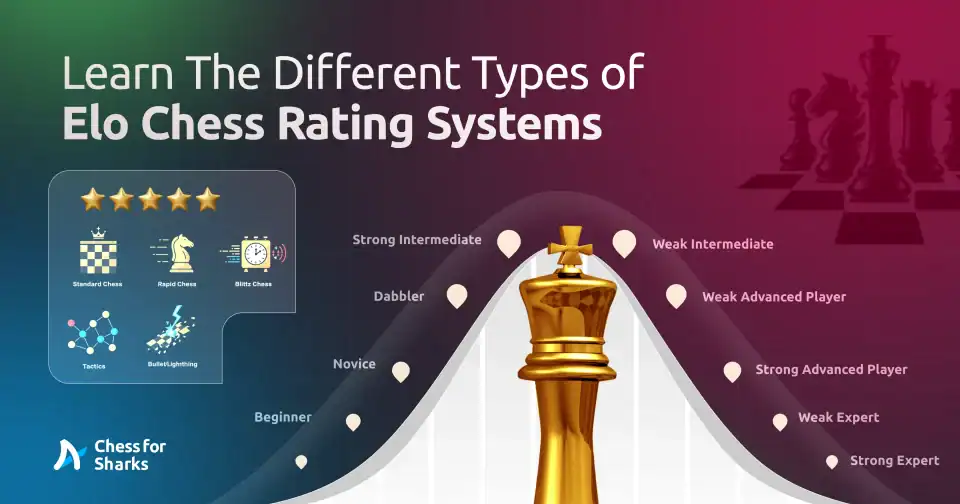

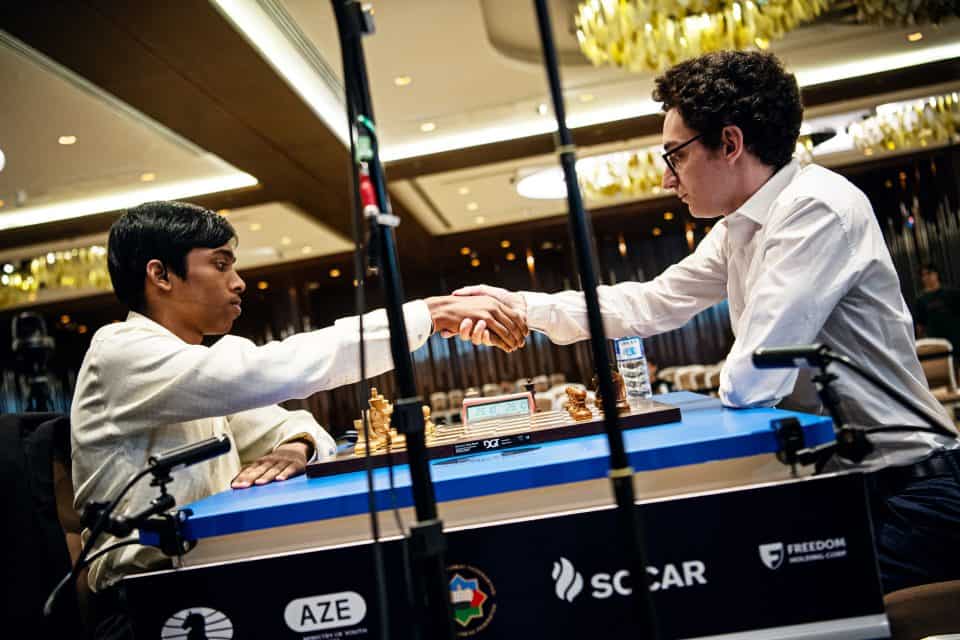
join the conversation